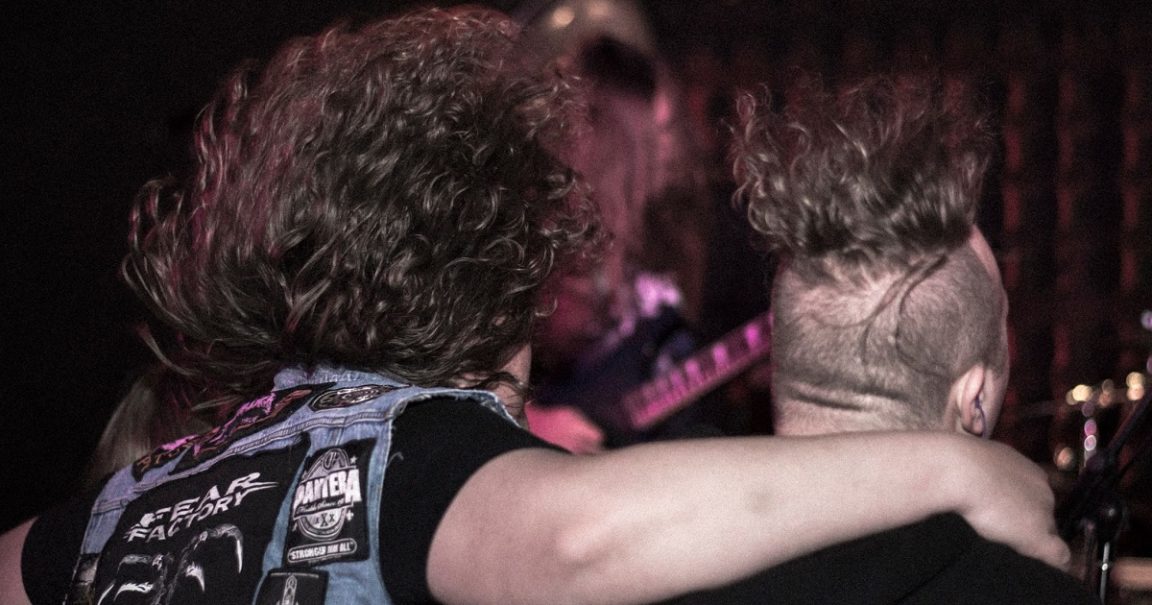If turning on the radio for the first time was man’s first voyage across the oceans, being able to access music using the internet is man walking on the moon.
My name is Dylan Gatt and for an extended period up until the global pandemic put a halt to the music industry I was very active in the thriving heavy metal scene in Melbourne, Australia. Not only was I a punter, regularly attending shows and checking out bands but I’m a musician myself. Over the years I have played multiple venues in multiple towns across Australia whether it was in my own band or for other bands and it has taught me so much about not only how the industry works but how people work as well.

Since I was young I had a love for music but my passion really grew in my formative years of secondary school. We had our first music classes and through some online friends back in the day I was introduced to heavy metal. For me then and to this day, it is my lifeblood. Through my teens I always wanted to be in a band and live off my music. I wanted to play shows and make memories and just enjoy life and honestly, I appreciate all of the experiences I have had.
But there were a lot of things I did wrong along the way. Mistakes that I could so easily have avoided which severely impeded my progress. Things that I didn’t do effectively. Things that I could have done more efficiently. The thousands of dollars that I wasted and blew away where there was no reason not to.
These experiences are felt by most young people looking to step into the music industry and more often than not it is these negative experiences that kill the drive and passion of musicians and for whatever reason, it is there is a severe level of gatekeeping on this information without any real specifics or methods to approach them.
If you jump on google and search for articles like “How do I start a band?” most of the information you’ll find is from people who have parroted information from 40 years ago that have not adapted to the modern climate of people. That’s right. Not the industry, but the people within it.
At the end of the day, music is written by the people and for the people so understanding people is the key to the industry. Just like any business, only the most professional businesses will stand the test of time so this is the most important piece of information I can give you…
Your band is a business
Whichever way you look at it, if you want to start a band to play shows – no matter your financial aspirations – you are placing yourself within the industry. Much like any industry, the people you work around will reflect directly on the way you approach it. It’s very common knowledge that people tend to not forget the negatives in business so there are things that you definitely want to try to do as well as things that you should be trying to avoid as much as possible.
You may have heard the saying “Time is Money” and that principle holds extremely true in the music industry. It’s an industry where – especially in the early stages – profit margins are thin to non-existent so people don’t want to be screwed around. The amount of bands I have seen fall apart due to their own mismanagement and inability to navigate the industry is staggering. It’s honestly the leading reason that bands fail.
As a musician, you will be communicating with all sorts of people in the industry and for the most part, none of them wants to deal with people who think they are rockstar celebrities and treat everyone like shit.
Keep your ego in check
You wouldn’t want to work with somebody who not only thinks they are better than you but acts like it or regularly tells you that as well. People do not respond well to cocky behaviour and if you’re only just dipping your toes into a scene with the attitude that everybody is beneath you, you’re going to quickly find out that nobody wants to work with you.
Remember how I said earlier people tend to not forget the negatives in business? This is double true for people.
If the first impressions people get of you, your band or your representation are that you appear to be bad to work with it is going to make it significantly more difficult to establish yourself into the industry.
I remember once being on a headlining bill for a show being organised through a good friend of mine who booked events for a living. One of the bands on the set was playing their first show. In the weeks leading up to it, the band would pick fights with everybody else because their demands weren’t being met. They would boast about their level of professionalism but would routinely ignore correspondence, trash talk the other bands they were set to perform with and worst of all they demanded to use other peoples equipment because they didn’t have their own stage-capable amplifiers.
Let’s just say, that band is no longer around. They got kicked off that show, word spread and they broke up shortly after because no promoter wanted to book them.
Another thing to point out is that in most scenes there is a form of band hierarchy. Typically, the larger bands will headline or play higher up on the bill when more people attend. The newer bands that are typically cutting their teeth will be opening. I’ve seen bands complain about being the opening band like they are entitled to be higher up but ultimately respect the promoters decision and the work and effort the other bands have pulled in as well. If they are pulling in the wider audience it’s likely they will be higher up on the bill. Use it as an opportunity to promote your own music to a wider audience that you otherwise wouldn’t have been able to.
One half of the industry is business and the people within the industry. The other half is the most obvious – the music. The music is ultimately the major product of your band so the most important decision you will ever make is…
What sort of music do I want to play?
This answer at face value can be extremely easy to answer but it can also be the most difficult.
Like I explained earlier, I love heavy metal – specifically thrash metal. All I could think about was how awesome Metallica and Megadeth were and how badly I wanted to write music like them – and that’s all well and good.
That is the extremely easy to answer part. You love a genre and want to create music in that style? Great! What you need to consider however is how you will set yourself apart from all of the other bands that are doing the exact same thing. Genres in the modern industry tend to be extremely saturated. Not only this but styles that are trending tend to come and go quicker than you can imagine. Those who are successful in the industry are never playing catch up – they are setting the trends. This is where the answer becomes the most difficult.
The most successful bands know how to set themselves out from the rest. They are either doing what no other band before them has done or are evolving what is already done into a whole new beast. When people listen to music for the most part they are always chasing the next big thing. If you are just imitating somebody else the average music listener will not give a shit about you and all of that time, money and effort you’ve spent writing the same music as everybody else has gone to waste.
The style of music you want to create and you want people to hear is the single most important decision you will be making at the beginning. The next question you must ask yourself is simply…
How do I want people to hear my music?
Hundreds of years ago music was a luxury enjoyed by the rich. Orchestras and theatres were the rage and it’s where people would go to listen to music. As the years went on instruments became more diverse, more affordable and easier to produce which led to a massive expansion in availability and consumption. Suddenly new demographics were able to access music in ways they never could before. The turn of the 20th century saw everyone from the very rich to the very poor able to access anywhere from major halls to small venues to see people play and perform. Busking and street performances started to become much more commonplace.
As technology grew the ways that music was consumed grew with it. Physical formats could be produced that allowed people to listen to music in their own home and with it, the accessibility of music grew with it. From radio to vinyl. From tape to CD. Right now we are in the digital age and music has never been easier to access.
If turning on the radio for the first time was man’s first voyage across the oceans, being able to access music using the internet is man walking on the moon.
The technology is readily available to allow your music to be consumed by just about anybody around the globe. Spotify. SoundCloud. YouTube. Social media. These are all powerful tools used to consume music and it is no longer exactly necessary to be a live performing band anymore.
Numerous bands and performers of all different genres have careers that exist solely online. They don’t play shows. They don’t release CD’s or tapes. They don’t even have albums – something which for decades felt like a staple and the only way to do things.
This answer to the initial question may seem obvious at first but it’s definitely something to mull over and discuss. It’s an answer you should genuinely consider discussing with your bandmates which brings me to the next part:
Where do I find band members?
As crazy as it sounds, the amount of bands that have been conceptualised and ultimately failed because of the inability to find band members is unimaginable. I myself have envisioned multiple projects that never got off the drawing board simply because I couldn’t find other people willing to be involved.
I’ve said it numerous times now and I will say it again – music is a “people industry”. Networking is key. You’ve definitely heard the saying “it’s not what you know, it’s who you know” and it certainly applies here. Getting to know people within the scenes is pivotal.
If you were looking for new people to do new activities and hobbies with you would typically go to those places to find people. If you were looking for new people to play golf with you’d typically go to a golf club.
Music is no different.
Musicians don’t only love to play music, they love to consume it as well. So it makes sense that going to shows and meeting people is the best way to find like-minded musicians who could be open to starting a band. Making friends with new people is one of the most powerful tools you can develop outside of the music itself in so many ways that I would implore you before anything else to just go out and meet people.
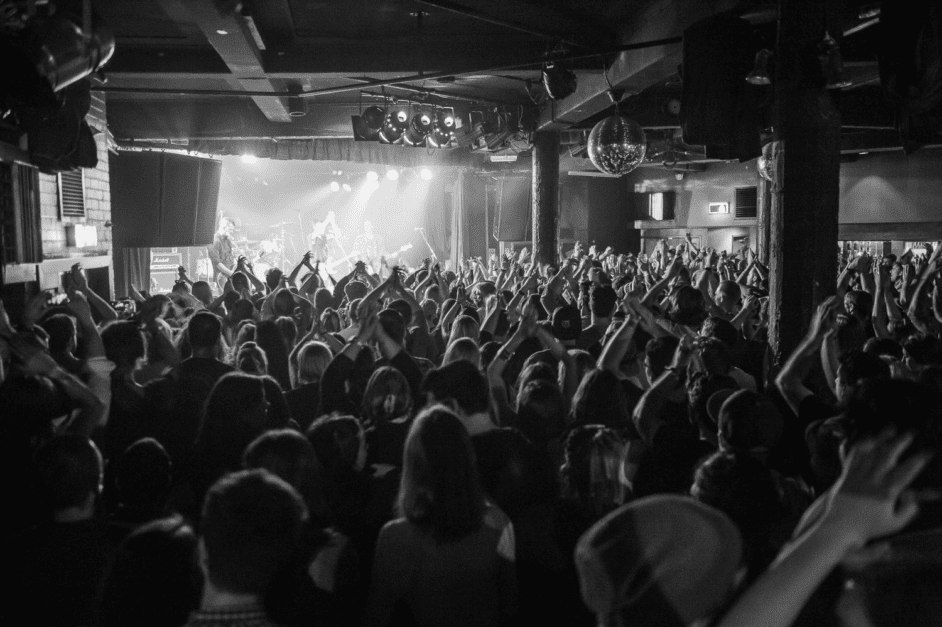
At the time of writing this with the seemingly forever present pandemic, this can be tricky. But the joys of technology have us covered here and this is the next tool in your arsenal you should exploit.
Look around for people in music groups online. Boards and forums on websites like Facebook and Reddit are sensational ways to get connected to people with similar interests and hobbies so it definitely makes sense to utilise these.
Depending on how you wish people to hear your music there is also nothing stopping one person from recording multiple instruments if there is going to be no live music aspect to your band so really just be creative and open to how you want your band to show itself.
You’ve found your band members? Great. Now the next step.
Who is doing what in the band?
The answer to this question is not the obvious one. I’m not referring to instruments here but more so the business roles that band members will be in control of. These roles should be discussed openly, focusing on the strengths of each band member.
Do you have a band member with multiple connections in the industry? Then it would probably make sense to have that person involved in booking and organising shows.
Do you have a band member who is really good with computers and social media? Then it would make sense to put that person in charge of your online presence.
Knowing the strengths of your band members is crucial and if you look at any famous band in history you will know that members had key roles in the way their bands operated. In saying this, however, it is also important to note that not all members must have a specific role. I’ve seen some bands where all of the business side has been left to two people and the remaining members were happy not being involved with it, focusing solely on the music.
The most important role is who is going to manage the band. This should be left up to the most organised band member who is willing to keep track and on top of every dealing involving the band. If no band member is willing to do this then it is entirely possible to find a dedicated manager as well. This has been done by many bands to great effect and in most cases removes a lot of stress from the musicians allowing them to focus on the music.
Ultimately, you and your members will have to discuss how much input they want or should have in specific things and that’s where it is important to know how to…
Communicate with your band members
It might seem like a straightforward thing, right? Have a group chat on Facebook, hang out, talk in person – whatever it may be and yes, you should definitely be doing these things. Having an open group chat where your band members are all involved is important. In some cases, it might be beneficial to actually have two chats. I know from my experience we’d talk so much with one another that the important stuff would get lost in the sea of text messages that we had to open a second chat for the more serious band related stuff!
But it’s not the where you communicate with your members that is important, it is the how. Band members should be actively communicating any ideas, grievances, problems, issues (whether it’s personal or with the band), health, availability – all the things that could actively impact the operation of the band.
Using a cloud-based calendar is a fantastic way to keep everyone organised. It will allow people to see when upcoming gigs are, upcoming rehearsals when band members cannot make certain dates due to work or family commitments and so on.
It’s also important to discuss band-related matters with all members. Keeping members in the dark on certain decisions is a sure-fire way to cause arguments within the band which can put tension on or even break the band up.
Knowing your band members is important but it’s also important to…
Know your audience
Without your audience, you will never get anywhere in the industry. If people don’t like you they aren’t going to give you a moment of their time which means they will not care about the music you are releasing. This is especially important when you’re starting out as a band. It’s another way that the music industry is a people industry.
I would simply avoid trying to be controversial for the sake of being controversial in the early days of your band. You’re simply going to come off as an edgy dick and you’ve derailed your band before it’s even started. Politics is another one it’s worth considering trying to avoid – that is unless your music is specifically tailored towards political discussion. Trying to persuade people you’re a good person isn’t as effective as proving to people that you’re not a bad person.
Holding and especially displaying views that will alienate members of the public is never going to reflect well on your band so it’s probably best just to avoid all those sorts of things. People want to enjoy music and have fun with it so don’t give them a reason to dislike you.
The people and the community make the scene, so it’s important to…
Know your scene
Every genre has a scene. Every town or city has a scene. Think of the scene as the community. It’s the bands. The musicians. The punters. The venues. The staff. The engineers. The promoters. The artists. Everybody who makes anything happen in one way or another is what builds a scene.
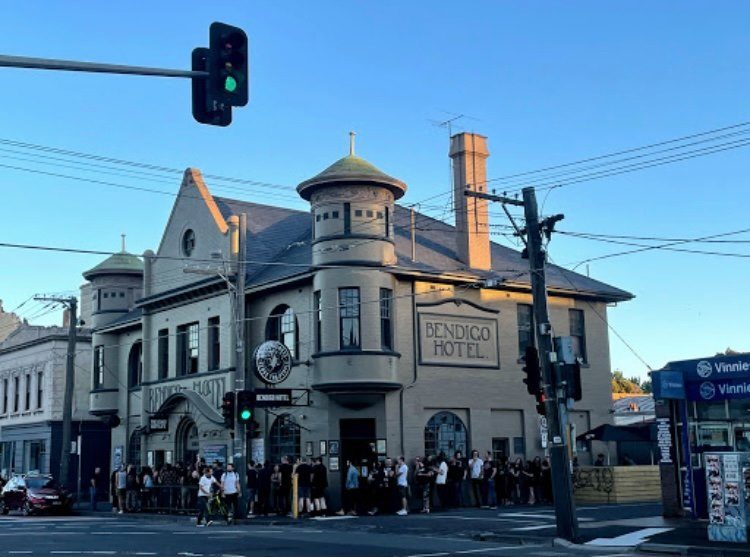
The best way to get to know your scene is just to jump right in and embrace it. Look for gigs in your local area and go to them. Check out some bands and musicians. Get talking to people. Come to learn what the people in the scene are like. Get to know their attitudes towards music in general. It all comes back to networking. Don’t be afraid to talk to people and introduce yourself! Check out some bands and musicians on social media in your local area and interact with them. Everybody helps to build the scene and the more people interact and socialise the scene will grow and prosper.
The people that are there to watch bands will be the people that you will want to watch your music because they are already there for the music. You may have some close friends and stuff that aren’t so into it who may still come down to see bands but it’s important to remember
Your friends are not your fans
It might sound like a weird thing to say but hear me out. I know when I started with my band we had a social group of friends who we always hung around with (and to this day, still do – they’re like family). They were there to hear our music as we rehearsed, listened to everything we did and they were around for the first few shows. Also, anything we wrote was automatically met with the response “oh my god that was awesome” but some songs we ended up performing which were given full of praise would be met with mixed reactions at best with audiences.
Some bands who end up meeting this scenario will then continue to write music based on the comments of friends who after a while will stop giving a crap. Remember, this is your passion, not theirs.
If the only audience you seem to be connecting with is your small circle of friends it’s an indication that either you are not effectively targeting the wider audience and scene in the areas you are playing or your material is not hitting it off with the crowds you are playing to. It’s why networking is so important. Getting to know the people you’re ultimately trying to sell your product to is the key.
You can scale a fanbase but you can’t scale your friends.
So you’ve got your band members. You know what you want to play. You’ve started throwing some ideas around.
It’s time to rehearse.
It might sound like an obvious thing to say but practice truly does make perfect. Your practice and rehearsals are important. There are so many ways that bands rehearse that the way you approach this will often come through trial and error until you find a balance that you can strike.
There are some things that you definitely should consider.
The first is establishing your practice space. Whether it be at home or in a hired rehearsal space, you should be free of most distractions while practising. I’ve often fallen into the trap where mid practice we start looking at things on Youtube and before you know it we’ve wasted two hours of our rehearsal talking shit and not actually practising. There’s plenty of time to hang out but when you’re spending money on a rehearsal space make use of the time.
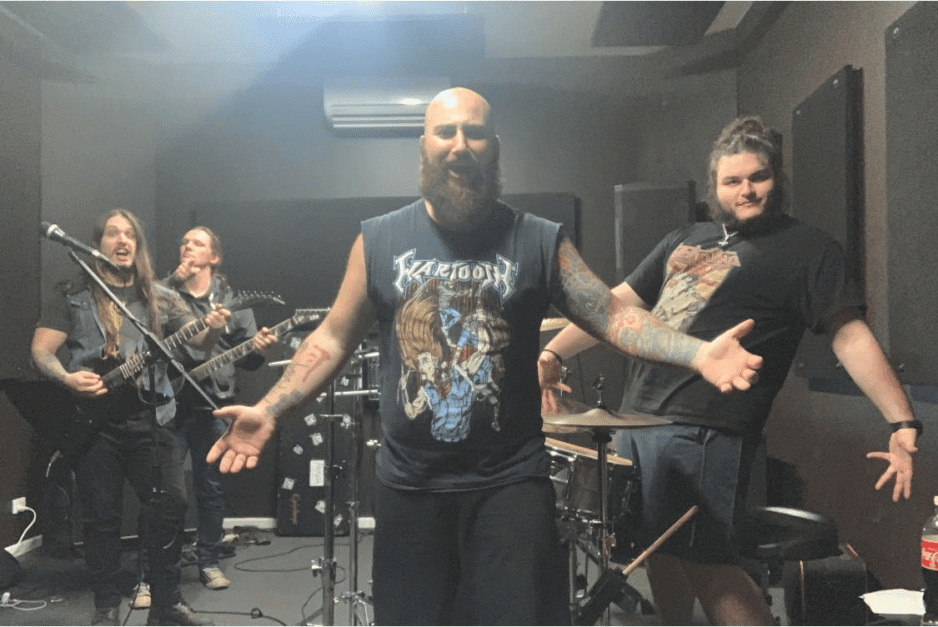
Having structure to your rehearsals is important and what you plan on doing for the day should be agreed on before meeting up to avoid wasting time figuring out what to do. Allocate enough time to set up, tune-up and get levels. Run through some warm-ups individually, then together as a band. Finally, begin running through your structure.
What my band used to do was set up and warm up. We’d then spend 30-45 minutes running through existing material or covers before having a short drink break. From there we’d go into writing new songs, compiling riffs and lyrics or learning new songs we had pre-written together during previous rehearsals.
If we had shows booked and upcoming we would rehearse our sets, including timing the set to ensure we were within our allocated time brackets.
Your rehearsals are also a good time while everybody is focused on the music itself to discuss the direction and communicate in ways you wouldn’t be able to do online so be sure to take advantage of it.
Another thing that you should be rehearsing is quickly, correctly and efficiently setting up and packing down your gear. Typically when you’re playing a live show you’re only going to have 5-10 minutes to set up before your set and another 5 to get all of your gear off stage, making it important to…
Know your gear
The amount of times we have played after our allocated time which annoys punters and makes the band look unprofessional because other bands haven’t been able to effectively set up is remarkable.
A professional band knows their gear back to front. They know how to effectively set it up and have it sound good and ready in a short amount of time. It will get to the point where you’ll be able to swap over drum kits in 5 minutes and have guitar gear set up in 2-3 minutes ready to go.
You should also know how to and be prepared to deal with any problems you may face during setup. Having a spare guitar on stage ready to go in the event of string breakage is paramount. Take spare leads, spare batteries. Take a small set of tools. Tape. Glue. Brainstorm any scenario that could occur and plan ahead for it because without a doubt most nights something is going to go wrong.
In the same vein, mastering the intricacies of your instrument is fundamental for any guitarist. Just as a seasoned band effortlessly swaps gear, a skilled guitarist should navigate the fretboard with a similar finesse. Knowing your 7th chord shapes inside out is akin to having a well-tuned instrument – it adds depth and complexity to your sound. Whether sliding into a soulful blues progression or elevating a rock anthem, the ability to seamlessly incorporate 7th chord shapes enhances your musical arsenal. Just as a spare guitar stands ready for any onstage emergencies, a guitarist armed with diverse chord knowledge is poised to tackle any sonic challenge that may arise during a performance.
It’s also important to learn how the rest of your bands’ gear works and operates. We were all well versed in how to set up each others’ gear so in the event of some strict time constraints we could all pitch in to help one another. At the end of the day you can’t perform without all of your band members ready so it’s all up to each of you to help one another out.
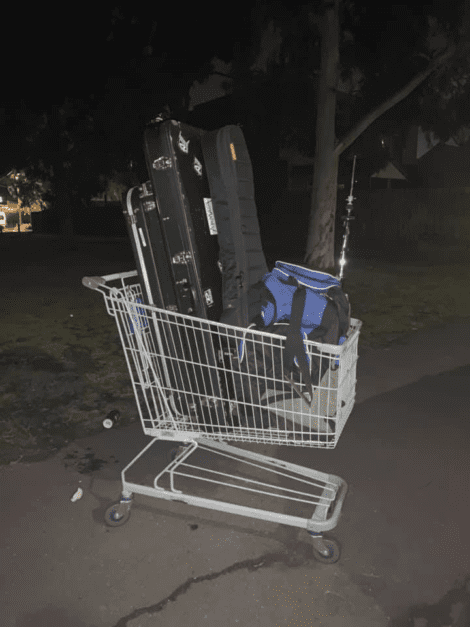
A lot of people seem to focus on how the band appears before actually getting all of the important stuff ready so to me focus on getting the backbone of your band operational and functioning before you think about…
Naming your band
It might seem odd but I’ve seen bands so hung up on finding a name right at the beginning that once they’ve rushed the process it is met with regret at some point down the track. Especially if you are forming a band with strangers you’re not going to immediately find something original and catchy that represents who you identify as.
The best bit of advice I can give you is not to worry about it. While you are writing and rehearsing there is no need to have an online presence without actually having any material to release. A brand new business working on a new product doesn’t constantly post updates saying things like “coming soon” or “we’re working on some great stuff” – they get it ready then advertise the completed product. People don’t get hyped over something they don’t care about.
A band isn’t a band without music so it makes sense to have the product ready before you think about marketing it. This could take a month, this could take six months. It can take as long as it needs to take until the material you have written and rehearsed is rock solid. During this time I will be almost willing to guarantee that a band name is going to make itself known. Something during the months together writing and rehearsing will inspire you. Perhaps a lyric written is the go. Something somebody says off-hand in conversation. The amount of great band name ideas I’ve come up with during general conversation is mind-boggling.
When the name comes along this way so naturally, you will be more inclined to agree it is a good name. Once you have the name settled, it’s important to work out how to brand it by ultimately…
Making your logo
There is no correct way to go about this but there are definitely wrong ways to do it. Your logo should be original, eye-catching and easily identifiable. The band logo is more often than not the first piece of visual promotion your band will have so great care should be taken in designing one. If nobody in your band is good with art and computers I highly recommend scouting out an artist to design one for you. If you want some good recommendations on artists then hit up some bands and ask for theirs. Again, networking is king and bands will help other bands.
Most digital artists will know how to properly format logos but if you are doing it yourself there are some things that are simply a must. Design your logo at minimum to 300dpi. The higher the resolution, the better. Your logo should be designed and saved in multiple formats including .psd (Adobe Photoshop), .svg (Vector based imaging programs) as well as a hi-res transparent version as .png.
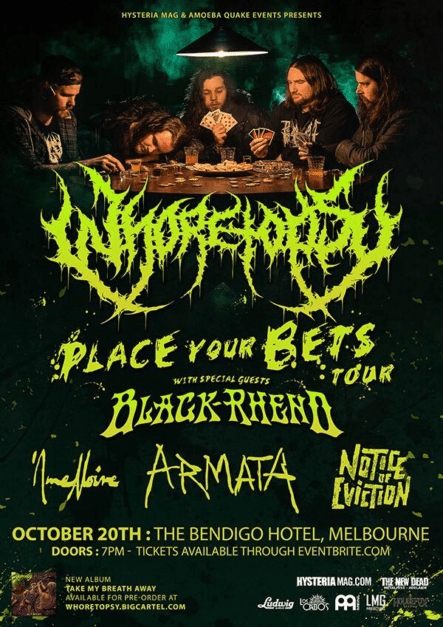
Do not save and distribute your logo as a .jpeg. This will cripple the quality and whoever is designing your artwork or flyers will genuinely hate you. There are standards to how this sort of media should be compiled and distributed.
Avoid ripping off other bands’ logos – especially if it’s easily identifiable. Not only does it look amateur and lazy but in some cases, it can even be illegal. Another thing to avoid is creating a logo with a font. There are some exceptions but for the most part, a purpose-designed logo is always going to look better than your band name typed out in Papyrus on a flyer.
Once you have your logo designed one of the most important tools has been created for…
Promoting your band
Promoting your band is often one of the most daunting things that especially new bands face. How do I get my band out there? How do I get people to know about my band?
I’ve already given you the answer. Again, it is networking. If you want people to know about your band you have to communicate with the people. This is going to take time and a lot of hard work but if you don’t do it your band is never going to get off the ground.
Modern phone cameras are bloody great at taking pictures so taking some promotional photos should be easy enough. Scout some good locations and take some photos. If you know some photographers even better – but it will come at a price.
Building your social media pages is of utmost importance. Most of the media people consume is through social media and digital networking so taking advantage of these is paramount. Facebook, Instagram, Twitter, BandCamp, YouTube and more are all readily available and should be utilised. This should be tasked to the band member with the most experience in doing this sort of thing. Avoid spelling errors and be sure to have your logo clearly visible on all of these.
If you ever need any ideas look at what other successful bands are doing and imitate that. Make online videos and content to keep your audience engaged as well as your music. Printing out small flyers with a link to some tracks and handing them out at shows is another great way to get your name out there.
One thing I will note to specifically NOT do is to add a bunch of people and immediately send invites to “like” your band pages. It looks needy and desperate and people tend to despise it. At least have a conversation with them first.
No form of band promotion, however, is going to come close to your music, so it’s important that you focus on…
Recording and releasing your music
Your music is your product. It is your lifeblood in the industry. Without the music, there is no band. Without the music, there is no scene. Without the music, there is no industry. Your focus should be not only on writing the best material you want to release but recording and releasing it to a professional standard – especially if you intend to sell it.
There is no harm in recording demos and EP’s to release for free. In some cases, it’s actually encouraged but if you start charging people for your music it’s important to ensure that they are getting their money’s worth.
If you have no recording experience I HIGHLY recommend seeking out a studio to record at. Studios aren’t cheap but reputable ones will produce your music to the standard you want. If you don’t know of any studios that work well with your style of music then again – network. Speak to bands in your local area and ask who recorded their music and some details to get in touch. The more you network and get involved into your scene this information will become more readily available.
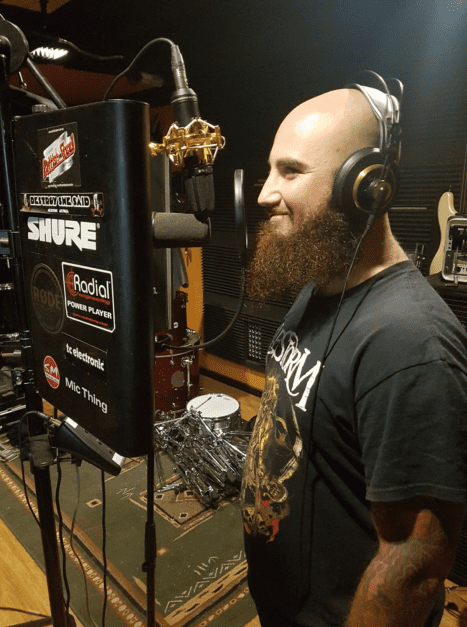
Once your music is recorded it’s important to know how best for you to release and distribute it. For most if not all bands with a live presence, CD’s are often considered the quintessential medium for sale. People watch your band live, hop over to the merch desk and buy your album.
In the digital age the internet is just as if not more important of a resource to capitalise on. While in most venues you’re going to be promoting your music and ultimately trying to sell your CD’s to only a hundred or so people, there are over 4 and a half billion people worldwide with an internet connection. The world is your audience, you just need to find ways to get your music out to them.
Some of this comes by smart uploading and promotion but honestly, sometimes it just comes down to sheer luck. All it takes is one person with a lot of influence to like your music and replay it to their audience and your music can spread like wildfire. This is very common with a lot of online-based musicians and bands who use the internet as their sole platform to distribute their music.
It’s important to take advantage of all of the mainstream media services as well. Signing up and releasing your music through an aggregate service will do all of the hard work for you. Most of these services like CD-Baby or Distrokid will place your music on all of the mainstream services like Spotify, YouTube Music, Apple Music and so on.
For the bands and musicians who want to play live shows and tours it is important to know…
How to actually get onto shows and events
You’re going to get sick of me saying this but again it comes down to networking and communication. If you become friends with bands they will likely pass on your details to promoters who are always looking for bands to put on events. If you know these promoters speak to them directly. The initiative is always good in these situations.
The other option is – if you have the experience – to run an event yourself while simultaneously putting your band on the bill. While this option is fantastic if you know how to do it, it does come with some level of risk. Your band is guaranteed a spot on a show but you also have to factor in the finances that come with it. Bands don’t play for free so budgeting for sound and lighting engineers, staff, the venue, event promotion and ultimately the band itself should be taken into account. If you don’t get enough heads through the door the shortfall has to come from somewhere and that has to be your pocket.
The one thing a band hates most is a promoter who doesn’t pay.
If you however want to rely on promoters booking your band instead this is all well and good and still a tried and tested method to get your band out there. Look for events in your area, see which companies are hosting them and get in touch. Some venues may have a list of promoters they work with directly so it’s not a bad idea to contact the venues for that list to be passed on.
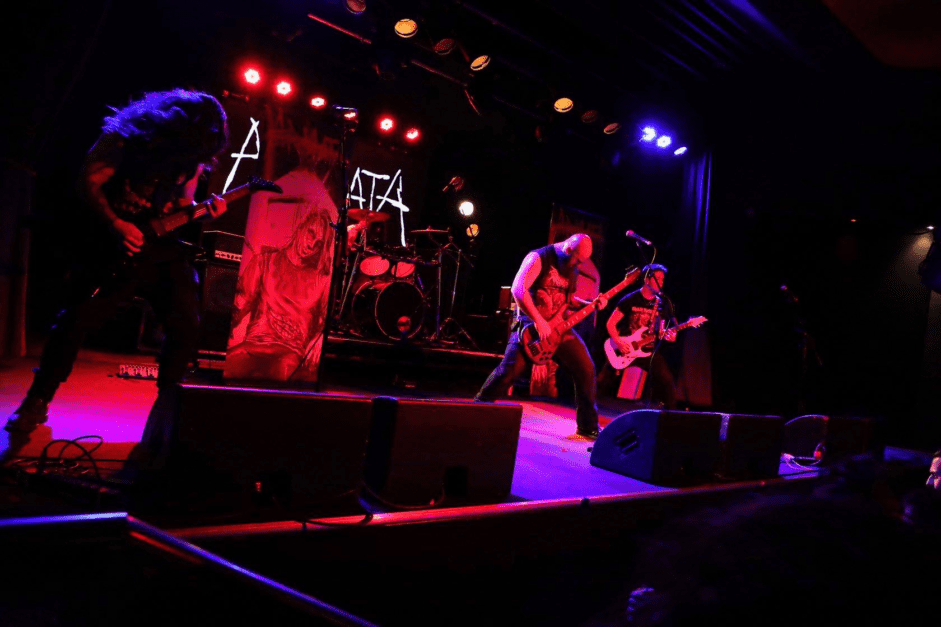
With enough work, it will get to the point where you start being approached to play shows by promoters – them chasing you. This is eventually the ideal you’d love to get to because not only is it guaranteed work, it’s a sign that people are beginning to not only recognise but also enjoy your band!
There are shows that you can and should reject
For years around Melbourne, there were companies that would host “Battle of the Bands” style events that only had one purpose – making as much money for that company as possible. These would revolve around giving a band 50 tickets which they were then required to sell, absolving the company of all promotional duties. These events would have no real theme and whatever band was unfortunate enough to fall into the trap would do. There were often little to no standards and they were held at venues with terrible stage and sound equipment.
Shows like these do nothing for your band and are more often than not a complete waste of time and money.
Another thing you should avoid doing is playing for “exposure.” This is a thought often submitted by venues that don’t want to pay for their entertainment and is a horrid practise within the industry.
Know your worth.
Quality promoters will pay bands what they are worth. Often, the agreed payments are door splits which is completely fine but larger bands that can almost always guarantee an audience do have some leverage to demand a set payment for them to perform. All of this comes down to…
Knowing how to communicate with promoters.
Promoters love professional bands that are easy to work with. They love bands who are well organised and communicate well.
Your contact details should be readily available on all of your online platforms so if a promoter comes across your band and likes it they have multiple ways to contact you. You’d be amazed how many times I’ve tried to book a band but haven’t been able to find a way to actually get in contact with them and due to time constraints, I just decided not to pursue them.
If you end up getting put onto a bill there is a list of information you should have readily available to provide your promoter. Organising a template you can easily send out to them is a good idea.
This template should include the band’s primary contact, the contact details of all (other) band members, websites and emails. You should provide a link to a downloadable zip file containing all of your logos in multiple formats and artwork they can use for promotion. Provide some photos you have permission to use for them to use as event promotion as well. Provide links to online music videos. You should also provide a full list of equipment that you will be bringing and a diagram to show your stage is typically set up. Provide a setlist that you will be playing as well as payment details like account numbers.
Just think to yourself – if you were organising a show what information would you want from a band? Compile it all and have it ready to go. It is also very beneficial to design an electronic press kit.
What is an Electronic Press Kit?
An Electronic Press Kit, more commonly known as an EPK is a distributable package intended to be sent to promoters, labels, reviewers, radio and media companies you are trying to advertise your band too.
An EPK should include a biography of your band, a list of band members, some photos both live and promotional, some information that you want them to know, a discography/list of releases, some videos of both live performances and music videos, some promotional material, reviews from well-known sources and contact details to your management/booking agents.
This should naturally be kept up to date in a condensed but easy to read format. A 2-3 page interactive .pdf is wonderful for this. Small file sizes that are easy to email across are the key.
It is also worth knowing where you can set up merchandise whenever you are playing shows which brings me to my next point which is…
Band Merchandising
I left this topic last for good reason because it’s not uncommon to see bands releasing merchandise before they have released any music. To put it frankly it isn’t a good look.
The first bit of merchandise that you should be releasing is typically your music. After that, the world is your oyster and sometimes a bit of creativity over the generic ideas can be really successful. I saw a band make an absolute killing releasing their own band-themed hot sauce!
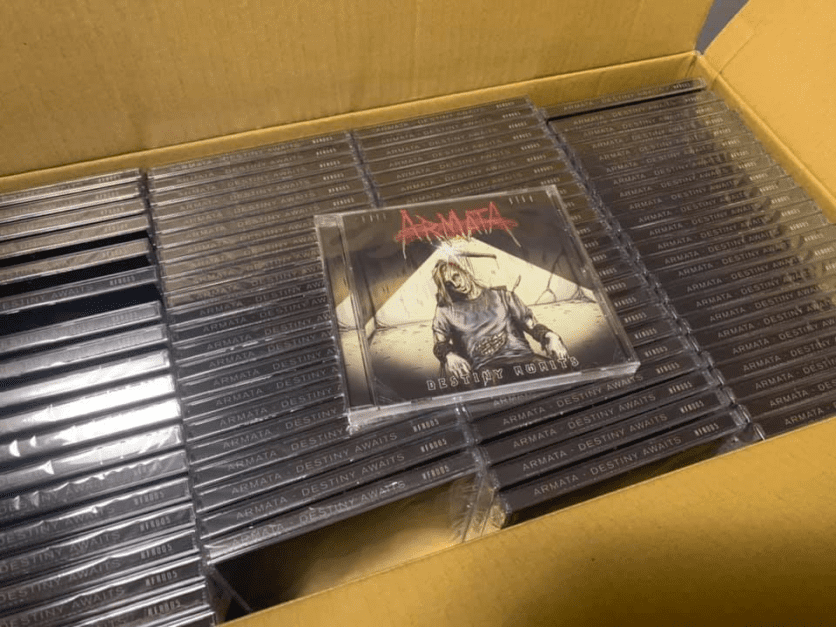
That being said, there are staples to merchandise because they are tried and proven methods of generating income for your band. T-Shirts are the big one and having some killer looking shirts will typically do well for you. I would highly recommend paying an artist to design some quality graphics to print out on your shirts that really stand out on a bench containing the merchandise of multiple other bands. Hats, beanies, stubby holders, stickers – your imagination is your limit.
There are exceptions, however. If your thoughts on releasing your music on a physical format are not in the immediate scope I have seen some success in bands releasing simple black shirts with their white logo on them just to have “something” on the merch desk. These will typically be cheap to produce in small runs and serve as a way to get more people to notice your logo.
The final bit of advice I can impart is an answer to an often asked question…
How do I get an endorsement?
Before we get into the ‘how’ we should cover the ‘what’.
An endorsement is a deal that you have made with a brand or company where an agreement is made for you to use and advertise their product where in return you receive discounts or free products. Paid endorsements are more like sponsorships where a company will pay you to use their products.
For the sake of those entering the industry, we will deal with standard endorsements.
These are typically handed out to musicians who have established themselves in their respective scenes. They could be for things such as guitar string suppliers, plectrum brands, drum skin manufacturers all the way up to major instrument and amplification companies.
If you use a certain product that you love and are happy to commit to using only that brand’s products for the foreseeable future then go out of your way and contact the company through contact forms on their website. Provide your name and band links. Explain the products you use and what you love about the product. When asking for endorsement it’s important to explain to them the benefits their company would receive from you endorsing their company. If you have a regular touring schedule make note of this as well, as crowd members seeing a product are potential customers for that business.
There will be stipulations to an endorsement and each brand is different but they will communicate these with you. Some will require you to place their logo on any band advertising material you release (such as gig posters or on your website). Each company has their own methods to promote their brands through you.
Over the years there have been so many things I’ve picked up being involved in the industry and I’m always learning and adapting as the people and the technology changes around it. Always be open to suggestions and don’t assume you know it all. Don’t be afraid to ask for help and advice if you’re ever unsure. Most of all as seriously as you should be taking it – remember to have fun. After all, if you’re not having fun then what’s the point?
If you have any questions or suggestions please feel free to leave some comments below and I’ll do my best to impart some advice where possible.


